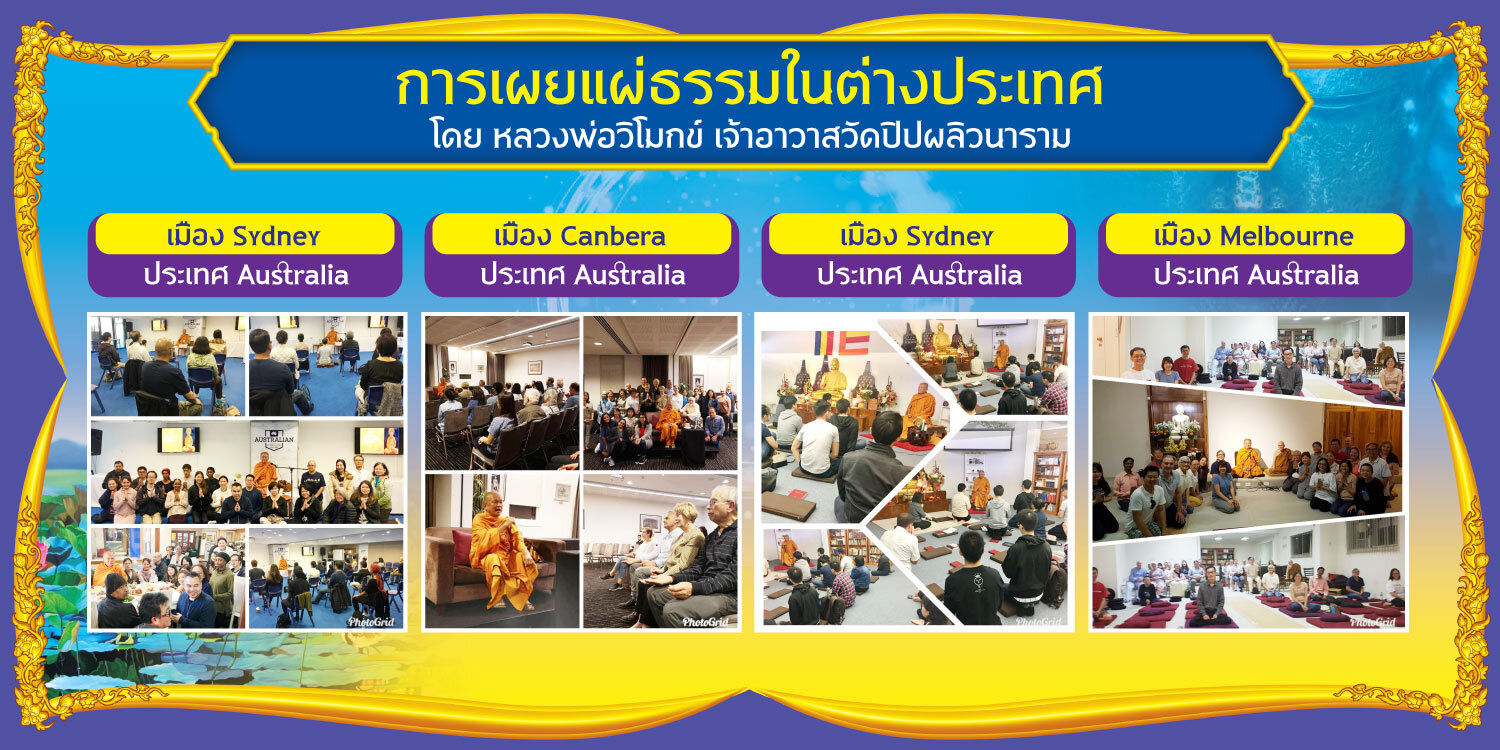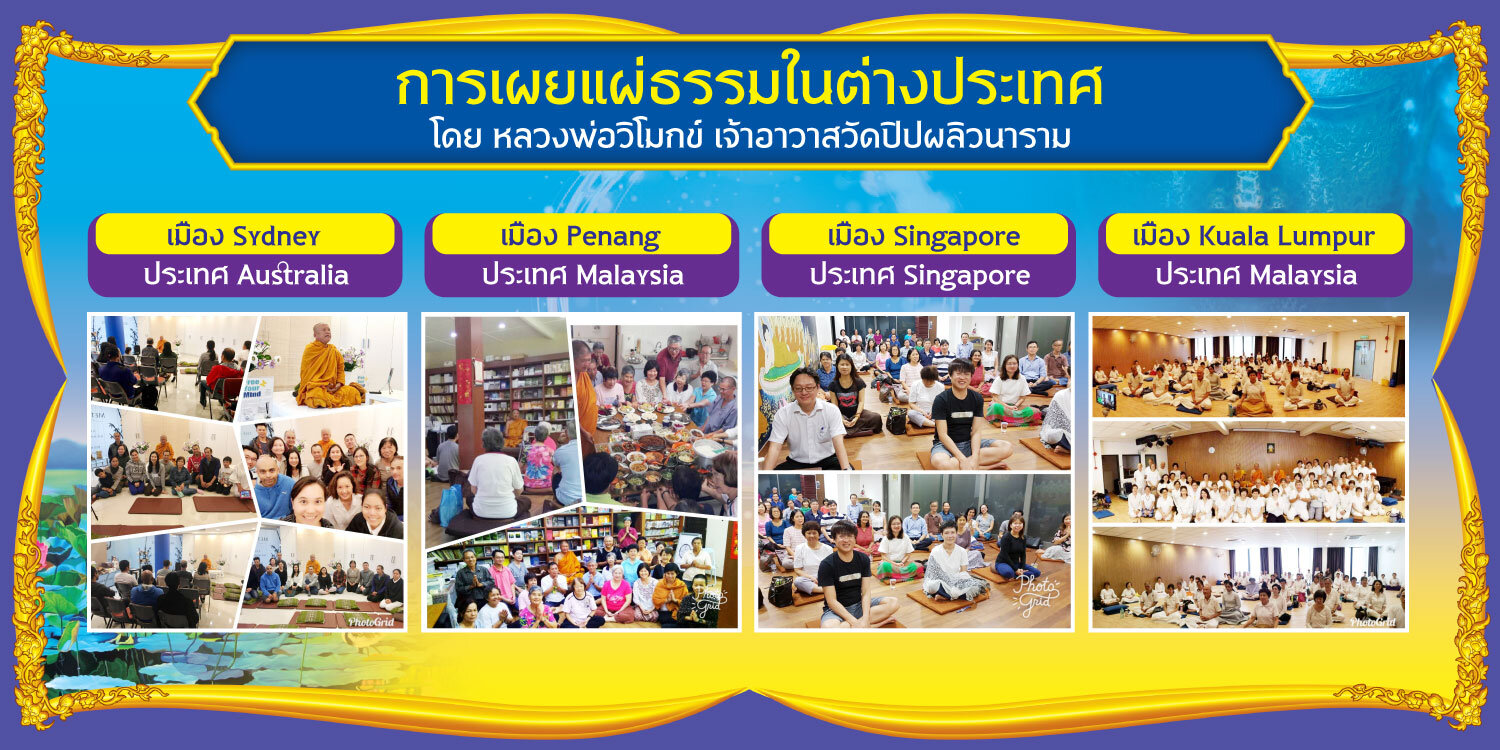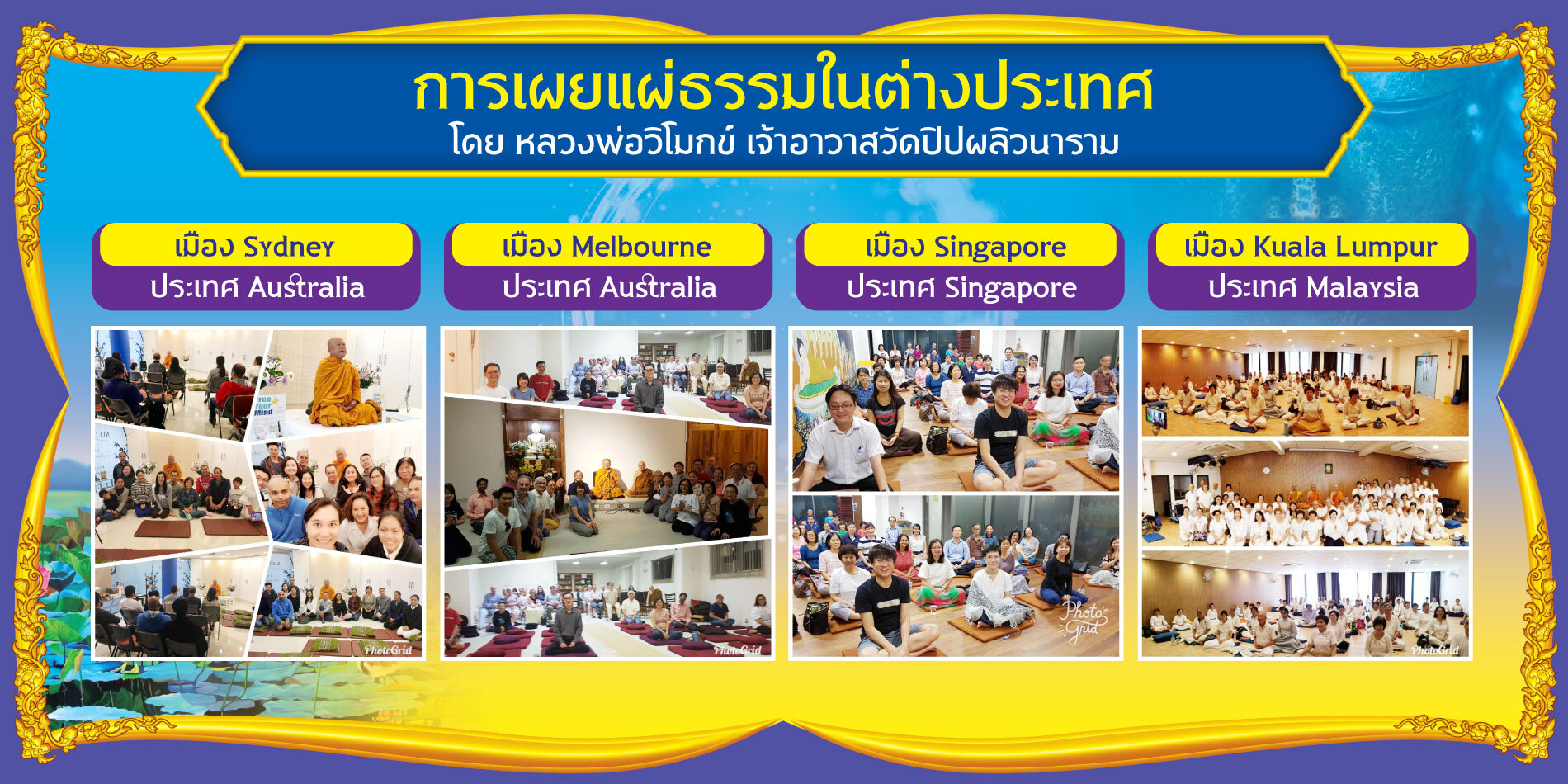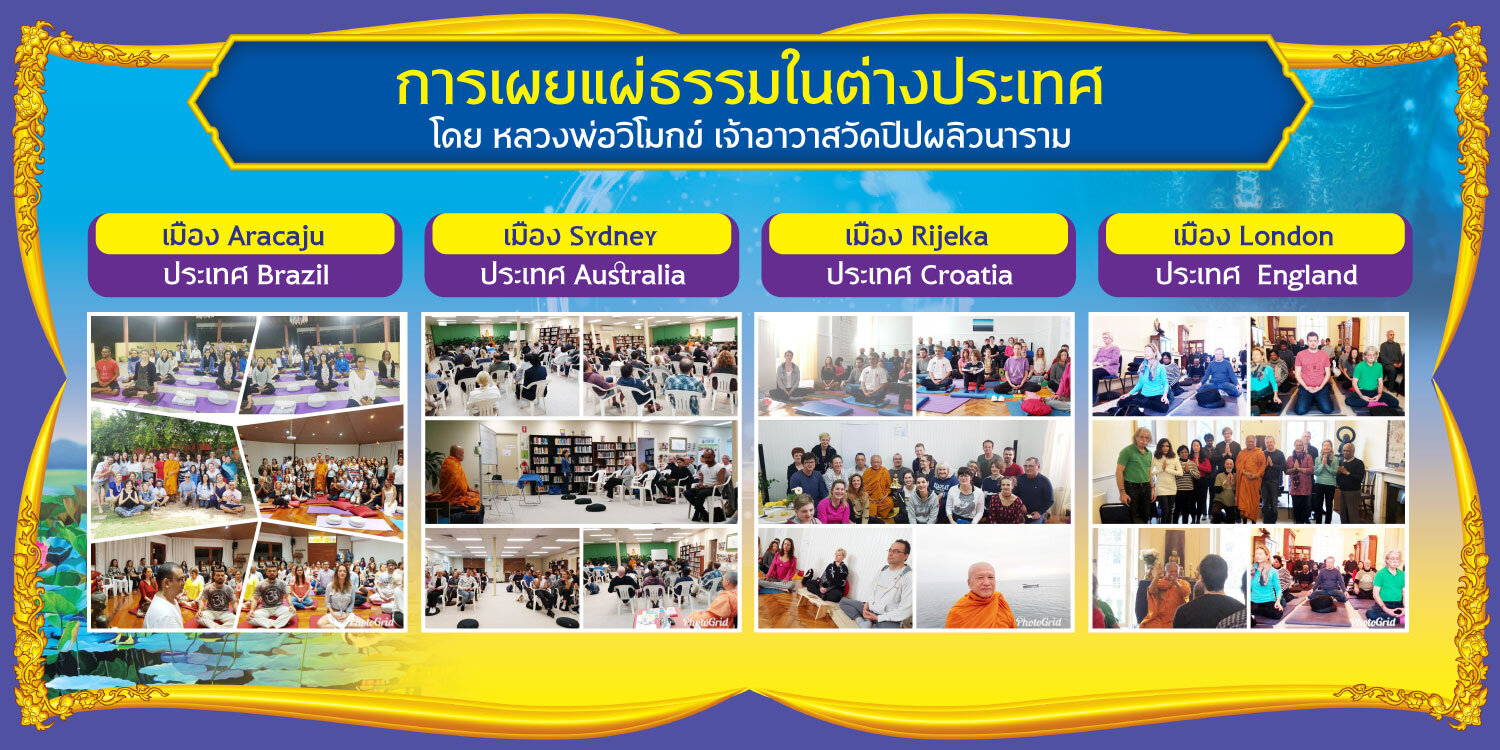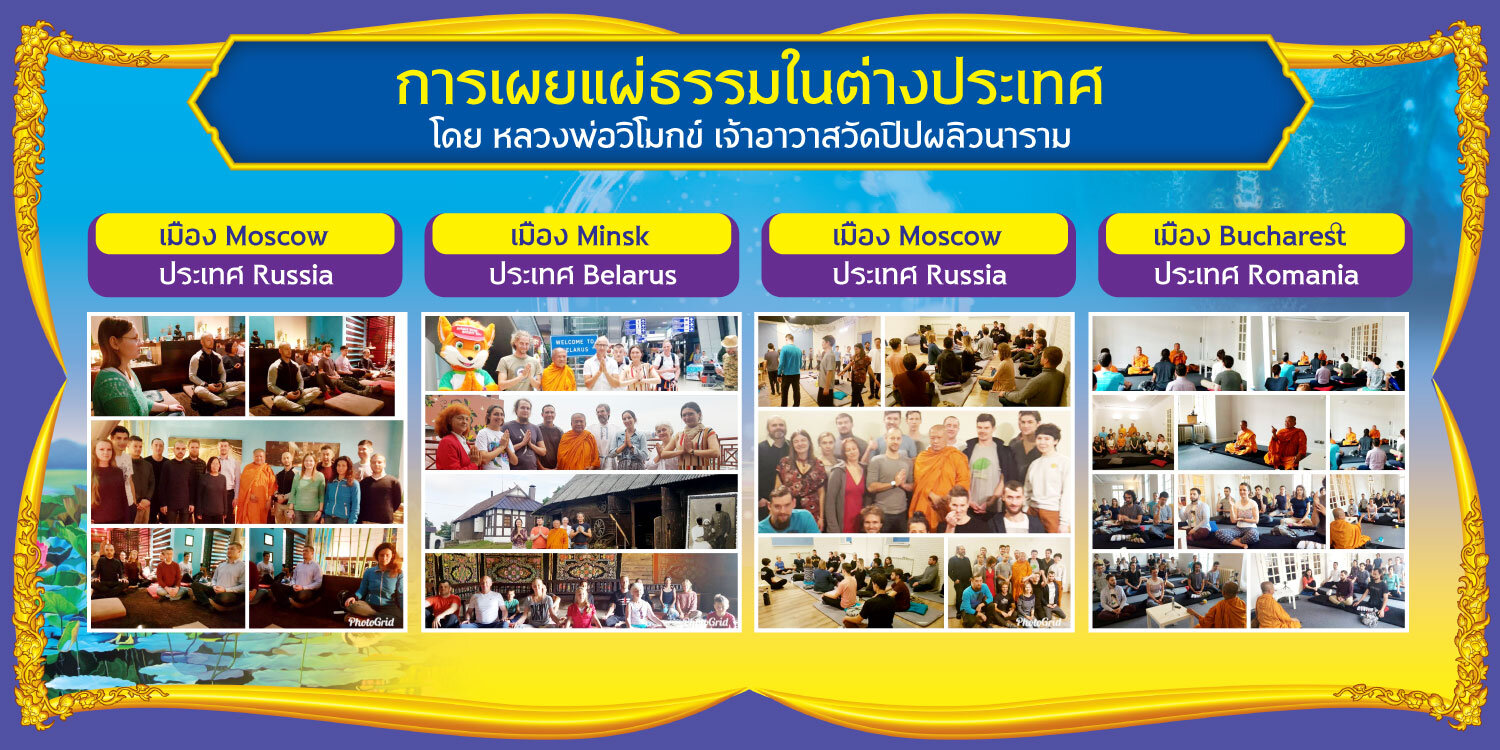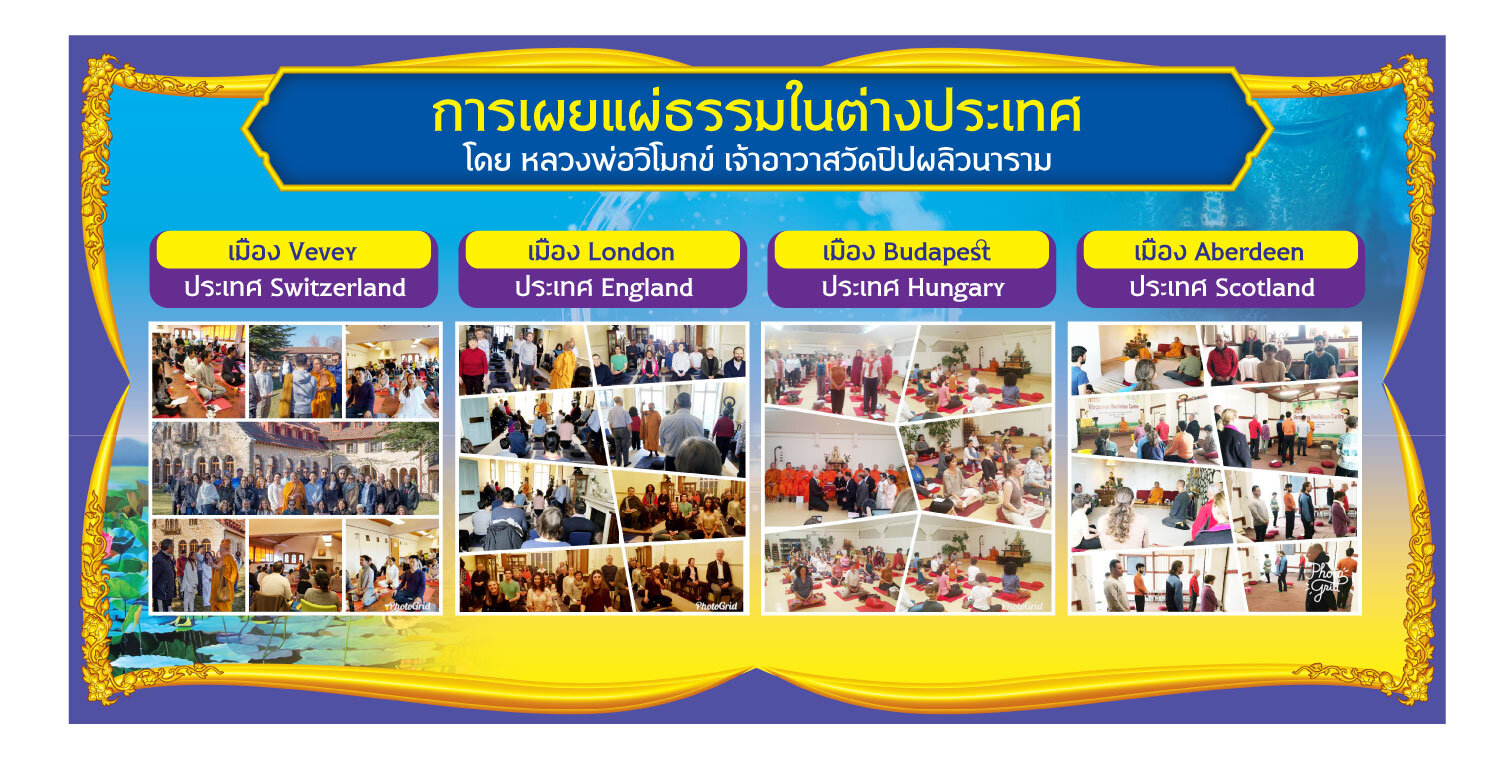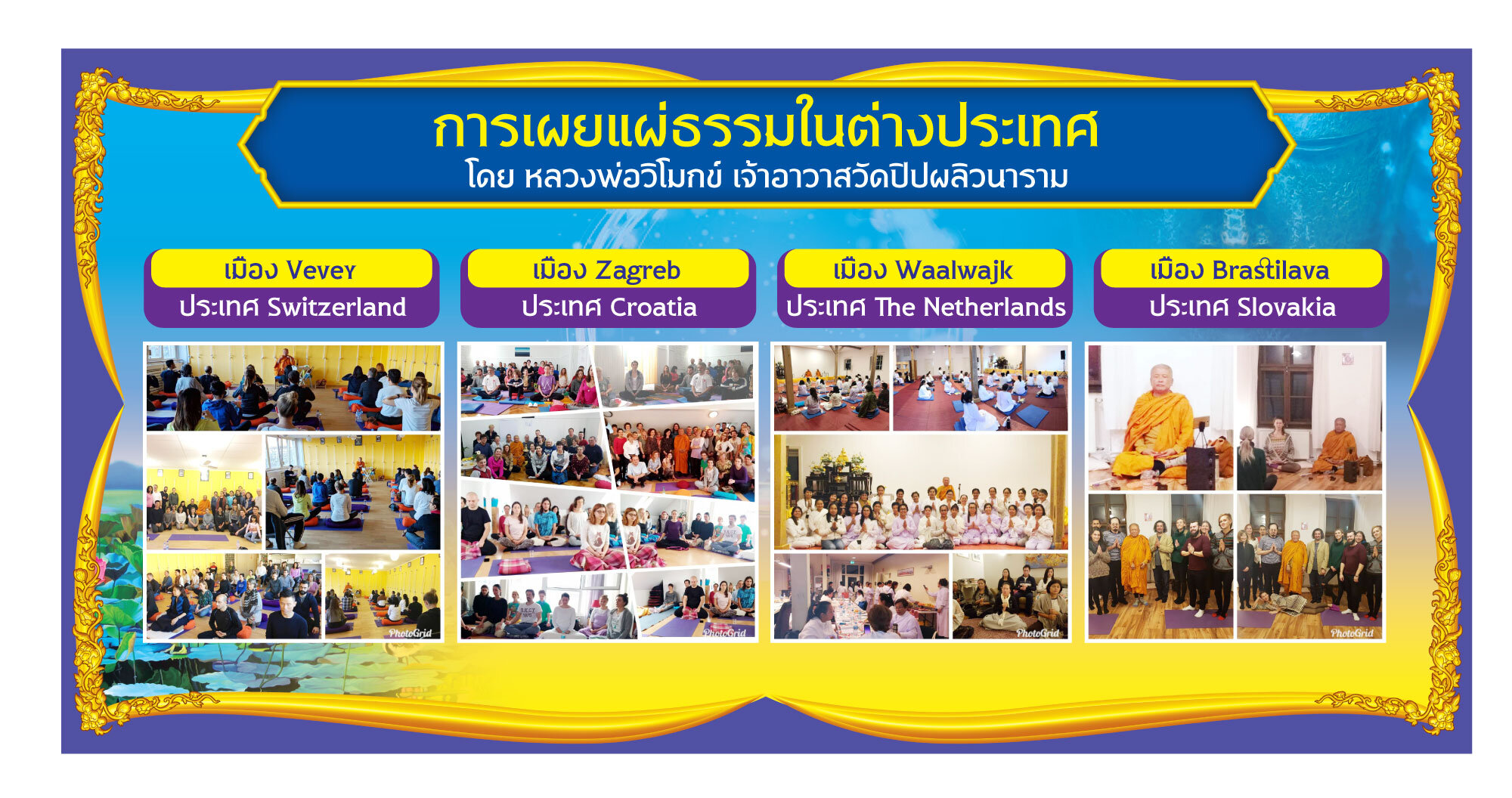Venerable Master Vimokkha
(Photo courtesy of Josh Chang, copyright 2017, all rights reserved.)
Venerable Vimokkha Mendhino, Ph.D is the abbot of the Thai Forest Monastery Pipphalivanaram in the countryside of Rayong Province. He received training from some of Thailand's most renowned Buddhist masters and has developed his own techniques through years of practice and exploration.
Medhino Bhikkhu, Ph.D., more widely known as the Venerable Vimokkha, is the abbot of Wat Pipphalivanaram, a Thai forest monastery founded by the Great Master Kassapamuni in Rayong Province, Thailand. Venerable Vimokkha excels at teaching mindfulness and vipassana insight meditation with techniques blending lessons from Thailand’s great masters with his own self-discoveries. Ven. Vimokkha’s teachings are best described as accessible and pragmatic. They are aimed at an immediate direct experience of the nature of mind. His palpable power, charisma, and cheerful encouragement make him a truly unique master well-suited for these times.
Ven. Vimokka’s book entitled, “The Development of Mindfulness in the Practice of Meditation” (forewordgiven by Professors Praves Vasee and r Rapee Sakrick) was published in Thai by Amarin, and is awaiting publication in English. Ven. Vimokkha pioneered a workplace mindfulness training program used by companies and local government agencies. He travels widely to teach Buddhist meditation and he has active students throughout the world, including Thailand, Malaysia, Australia, the United Kingdom, the Netherlands, Switzerland, Germany, Italy, Poland, Hungary, Belarus, Russia, and the United States.
Ven. Vimokkha was born in Nakhon Pathom, Thailand in February, 14, 1957. He recalls having a normal childhood with a special inclination toward creativity. In school, at around age 12, he enjoyed classes on meditation. At the age of 16, he was inspired by a book entitled Handbook of Mankind by the famed master Buddhadassa Bhikku, which raised the profound question, “Why are we here?” Showing bravery for a young Thai, he began to travel by himself to far-flung provinces to visit temples and glean wisdom from various teachers. Closer to home he started to study meditation and Buddhist philosophy formally at Wat Mahathat in Bangkok. He also became chairman of the Buddhist Club at his school (Thailand’s top secondary school, Trium Udom Suksa), a post he used to help organize frequent interactions between monks and students.
At age 19, Ven. Vimokkha went to Kasetsaret University in Bangkok where he studied horticulture. He was the assistant president of the Buddhist Club. During a break from school, he went to visit Ajahn Chah (perhaps Thailand’s most famous monk of all times), where he stayed for 10 days and was privileged to hear the great master impart his wisdom. He also received teachings from Luangpo Thet Theresranangsri in Nong Khai, from Luangpo Mun, and from other celebrated masters of the Thai forest tradition.
After graduating from college, and before entering the workforce, Ven. Vimokkha became a monk for the first time at age 22, under the guidance of the strict, eminent master Kassapamuni. He remained a monk under Kassapamuni’s tutelage for 18 months.
Though he pledged in his heart to return one day to the holy robes, he entered the workforce. Over the next twenty years, Ven. Vimokkha held several positions, from a bank lending officer, to a manager in the engineering section of a large telecommunications company, to a gemstone mining operation in Australia, and finally as an assistant managing director at a successful precious gem and jewelry exporting company. This “real-world” workplace experience would later prove important in his Buddhist teachings and his ability to revitalize a languishing monastery.
As he approached the age of 40, he was acutely aware that life was moving fast, and he renewed his personal commitment to become a monk once again. But first he decided he would increase his scholastic knowledge of Buddhism. While still working, VImokkha attended Mahachulalongkorn University, earning first a master’s degree and then a Ph.D. in Buddhist Studies. Towards his Ph.D. Ven. Vimokkha wrote several thematic papers (“Sati and Sampajañña According to Theravada Buddhism,” “The Development of Sūnyatā (Emptiness) in Mādhayamika,” and “The Application of Emptiness (Suññatā) in Daily Life”). His dissertation was entitled, “The Concept and Interpretation of Sûññata (Emptiness) in the View of Buddhadasa Bhikkhu.”
Fulfilling his long-held goal, Ven. Vimokkha became a monk again at the age of 47, ordaining at Wat Krajomthong in Nonthaburi. His preceptor was a great vipassana master Ven. Suthat Kosalo. He remained for one year under Ven. Suthat Kosalo’s instruction. Afterwards, Ven. Vimokkha went to study mindfulness under Luangpo Tien at Wat Sanomnai in Nonthaburi, who was particularly adept at teachings on “rising and falling.”
At the invitation of the abbot of Wat Pipphalivanaram, Ven. Vimokkha began to hold mindfulness and insight meditation retreats at Pipphailvanaram. In a short time, Vimokkha’s presence at the monastery began attracting more people, more participation, more donations, and more expansion. The local villagers petitioned the senior monk at the temple to install Vimokkha as abbot, which soon took place.
Ven. Vimokkha immediately deployed his management abilities with his seemingly boundless energy and enthusiasm. Within his first year as abbot, Ven. Vimokkha decided to begin teaching abroad. He started in Singapore and Malaysia. As he honed his foreign teaching skills, he broadened his reach. As noted previously, Ven. Vimokkha now has students in four continents. (He is fluent in Thai, English, and Pali, and has studied German and Japanese.)



